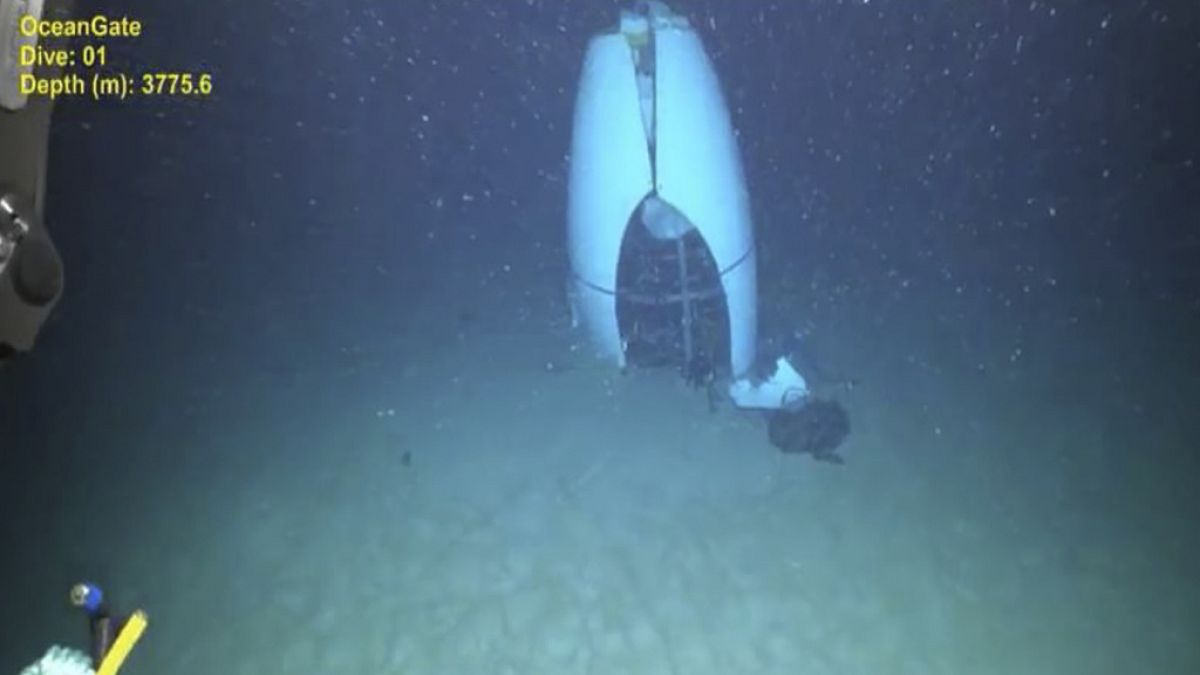The US Coast Guard Marine Board of Investigation is holding a public hearing into the Titan submersible disaster, in which the sub imploded during a descent to the wreck of the Titanic, resulting in the deaths of five people on board. The disaster could have been prevented, according to a former operations director at the company. David Lochridge testified that he raised concerns about the safety of the sub with the US Occupational Safety and Health Administration (OSHA) but felt let down when his complaint was not properly investigated. He believes that if OSHA had taken action on his concerns, the tragedy may have been averted. Lochridge’s testimony revealed internal conflicts within OceanGate, the company that owned the Titan, and its focus on profit over safety and scientific integrity.
Lochridge joined OceanGate as an engineer and submersible pilot, but quickly felt that he was being used as a showpiece to attract investors. He raised safety issues in a 2018 report and expressed his lack of confidence in the construction of the Titan. The company dismissed his concerns and rushed to get the sub into operation to start profiting from trips to the Titanic wreck. Lochridge was eventually fired for speaking out about safety issues, despite his desire to safely explore the Titanic. The hearing has shed light on the troubled history of OceanGate and the motivations behind the decision-making that led to the disaster.
During the final dive of the Titan, the crew lost contact with the support ship after communicating about the sub’s depth and weight. The submersible imploded, leading to a massive search and rescue operation to locate it. The wreckage was eventually found near the Titanic, prompting an investigation into the cause of the implosion. The hearing has brought to light the actions and decisions that led to the tragic event, including the high turnover of employees due to safety concerns and rushed engineering decisions.
OceanGate has suspended its operations following the disaster, and the ongoing investigations are seeking to determine the root cause of the implosion. The Coast Guard’s Marine Board of Investigation is taking statements from witnesses, former employees, and industry experts to piece together the events that led to the Titan disaster. The testimonies have highlighted the conflict between safety concerns and profit motives within the company, as well as the lack of proper oversight by regulatory agencies like OSHA. The fate of the company and the future of private undersea exploration hang in the balance as the investigation unfolds.
Witnesses, including former executives of OceanGate, are expected to testify at the hearing to provide insight into the company’s operations and decision-making processes leading up to the disaster. The Coast Guard and the National Transportation Safety Board are conducting parallel investigations to gather all relevant information and make recommendations to prevent similar incidents in the future. The hearing is shedding light on the complexities of private undersea exploration and the challenges faced by companies like OceanGate in balancing safety and profit motives. As the investigation progresses, more details will emerge about the circumstances that led to the Titan submersible disaster and the role of regulatory agencies in ensuring the safety of such operations.











